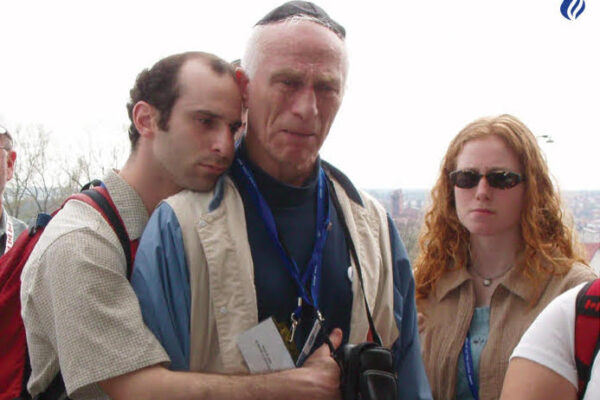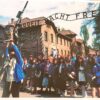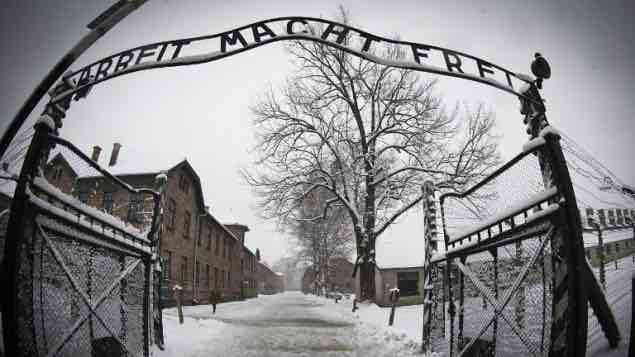
The entrance to the former Nazi concentration camp Auschwitz-Birkenau with the lettering ‘Arbeit macht frei’ (‘Work makes you free’). (JOEL SAGET / AFP)
WARSAW, Poland — A Jewish organization launched a database to help thousands of Holocaust survivors or their heirs regain property lost in Warsaw due to World War II and communism, after the Polish government issued a six-month deadline on claims.
The World Jewish Restitution Organization, or WJRO, announced the new tool Monday, three months after regulations went into effect that drastically limited the window for filing claims for property nationalized by the Polish government directly after the Holocaust, in which 90 percent of Polish Jewry was murdered.
Last June, the City of Warsaw published a list of 2,613 street addresses for open property claims, but without the names of the owners. WJRO’s database matches the street addresses with property owners’ names found in the 1939-40 Homeowners Directory for Warsaw or, where that was not possible, with the 1930 Homeowners Directory as well as through use of mortgage information, WJRO said.
The regulations were based on recent legislation that gave prospective claimants of Warsaw property six months to come forward, the WJRO said. Not all of the properties belonged to Jews, but it is believed that many of them did.
Claimants who fail to come forward by the deadline will relinquish their rights to the properties, with the city to assume permanent ownership of unclaimed properties.
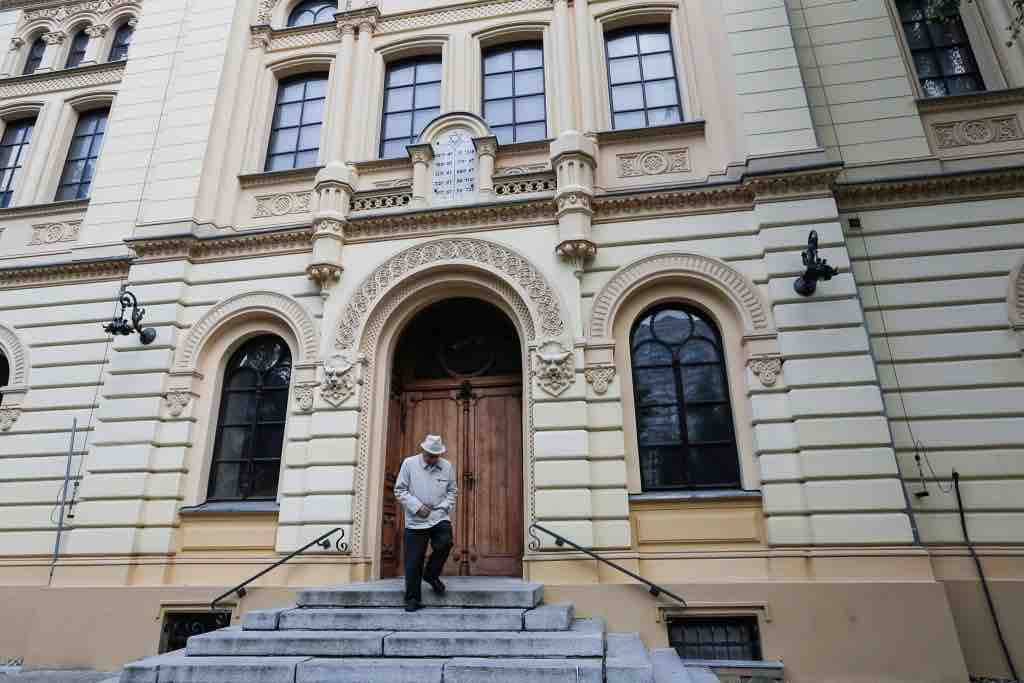
The entrance to the Nozyk Synagogue in Warsaw, Poland, the only surviving synagogue in Warsaw built before World War II. It was built between 1898-1902 and restored after World War II. It is still operational and currently houses the Warsaw Jewish Community, as well as other Jewish organizations. (Flash90)
“There is now a very limited opportunity for some kind of justice for people who suffered so much,” said Gideon Taylor, chair of operations for the World Jewish Restitution Organization, which created the database.
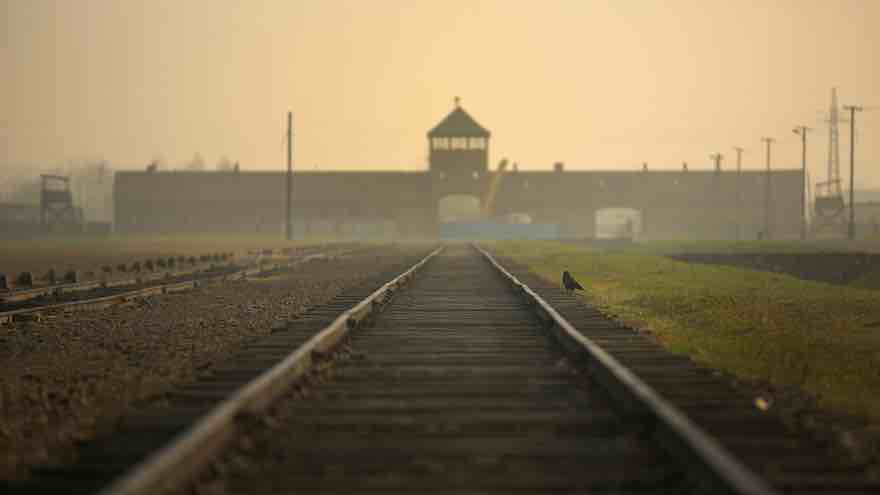
The railway track leading to the infamous ‘Death Gate’ at the Auschwitz II Birkenau extermination camp on November 13, 2014, in Oswiecim, Poland. (Christopher Furlong/Getty Images)
The new law, which entered into force in September, affects people who had property in Warsaw that they tried to reclaim after the war. At that time, the communist regime seized much of the prewar property, of Jews and non-Jews alike, making it impossible in practice for anyone to reclaim it until communism fell in 1989.
In the years since then, some original owners have reclaimed lost property in complicated legal proceedings, but it has been more difficult for the Jews who fled Poland and settled abroad.
Taylor says it’s not clear how many of the 2,613 properties were Jewish, but he believes a significant number must be because Warsaw was 30 percent Jewish before the war and Jews were well-represented in the professional and property-owning classes.
Before the war Poland was home to about 3.3 million Jews, the largest Jewish community in Europe and the second-largest in the world after the United States. Most of them perished in the Holocaust.
Despite the absence of legislation that addresses the problem of privately owned Jewish property in Poland, Polish courts have awarded compensation and restitution to several Jewish claimants in recent years. Several Polish lawyers and experts in the field told JTA that it was impossible to know how many of the claimants for restitution for such properties are Jewish.
In 1997, Poland passed a law for restitution on communal-owned properties, but more than 15 years after the claim filing deadline, a majority of more than 5,000 claims for such property has still not been resolved and most of the resolved claims have not led to restitution or compensation, the WJRO said.
Originally published HERE

